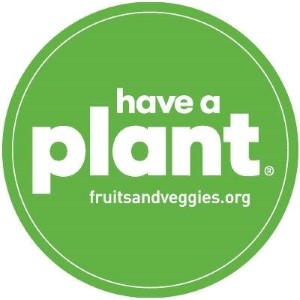What’s the deal with cholesterol and eggs?
The cholesterol content of eggs was once misunderstood. This has led to some confusion around the health effects of eating eggs. The heart of the matter though is that eggs are a nutrient-dense food that make up a valuable part of healthy eating patterns.
Dietary guidance, such as the Dietary Guidelines for Americans, is developed based on the entire body of scientific evidence available at the time of publication. Thus, it makes sense that as the science is updated and improved, the dietary guidance around healthy eating and living would naturally be adapted to align with the updated scientific understanding of how certain nutrients impact health.
Currently, the Dietary Guidelines for Americans includes eggs in all three recommended healthy dietary patterns and in 2015 removed the previous recommendation to limit daily cholesterol intake to <300mg. Additionally, the American Heart Association advises that healthy adults can include up to seven eggs per week as part of a heart-healthy diet.

So what does actually affect cholesterol?
First things first, the cholesterol you eat (called dietary cholesterol) and the cholesterol in your body (called blood cholesterol) are not the same. Our bodies, more specifically the liver, makes cholesterol in order to create hormones like vitamin D and bile acid for digestion. So, when we eat food that contains cholesterol, our liver makes less and the body can excrete more. The liver is responsible for regulating the release of cholesterol into the body, so it can be used by the cells around the body that need it to create cell membranes and other functions.
However, the food we eat can still impact our blood cholesterol levels both positively and negatively.
- Saturated Fat: Eating too much saturated fat can raise the level of “bad” cholesterol in your blood, thus potentially increasing your risk of heart disease.
- Dietary Fiber: When we eat food that provides dietary fiber, like fruits, vegetables and whole grains, the dietary fiber binds onto some of the cholesterol during digestion and removes it from the body.
- Eggs: Some people may have an increase in blood cholesterol in response to egg consumption, but when consumed as part of a healthy diet, the increase includes both “good” and “bad” cholesterol, so there is no negative impact on heart health.
When you eat fruits and vegetables, not only are you consuming fiber, which can help improve blood cholesterol levels, but you’re also getting lots of important nutrients that support your body and heart like potassium, magnesium, folate, vitamin K, vitamin C and vitamin E.
Most people don’t consume enough vegetables, which is where eggs can help! Eggs pair well with a wide variety of vegetables, which can help many Americans eat more of them. Additionally, eggs help you better absorb the nutrients found in vegetables, such as vitamin E and carotenoids, so that you get the most out of your vegetables.
So what is a heart healthy diet?
Choosing a variety of foods that support your overall health is the key. A heart-healthy eating plan includes fruits and vegetables, whole grains, lean protein and heart-smart fats. Get some delicious recipe inspiration here.
Recently the American Heart Association (AHA) released a scientific statement evaluating current popular dietary patterns and found that several are strongly aligned with heart healthy diets -including the Mediterranean, the Dietary Approaches to Stop Hypertension (DASH), pescatarian and vegetarian diets. Additionally, the AHA also recommends that eggs can be consumed as part of healthy dietary patterns to meet essential nutrient needs.
Learn more about what foods fit into a heart healthy diet here.
To dive deeper into heart health and practical ways to improve overall health, check out the Heart Health Handbook: A Guide for Heart Healthy Eating and Living.
The post What’s the deal with cholesterol and eggs? first appeared in The Foundation for Fresh Produce’s Have A Plant® blog.
Written by: The Egg Nutrition Center
The Egg Nutrition Center is the science and nutrition education division of the American Egg Board, consisting of dedicated nutrition health experts with a range of professional experience in food science and nutrition fields.
When it comes to key nutrients for healthy living, eggs rule the roost! Eggs are an all-around nutrient powerhouse that fits into a heart-healthy diet according to the American Heart Association. Plus, they are a complete protein with essential vitamins and minerals – including those crucial for supporting our brains and bodies.
About The Foundation For Fresh Produce And Have A Plant® Movement


The Foundation for Fresh Produce’s vision is to grow a healthier world by changing the trajectory of human health. The produce industry has the potential to provide solutions for many of the world’s greatest health and economic challenges – especially those surrounding nutrition and hunger.
The Foundation focuses on improving the appeal of fruit and vegetables as an integral part of people’s diets, supporting the development of infrastructure and supply chain solutions that provide easier access, and establishing strategic alliances that enable children and families to form healthier eating habits.
The transformative Have A Plant® Movement inspires consumers with compelling reasons to believe in the powerful role fruits and vegetables can play to fuel happy, healthy and active lifestyles.


